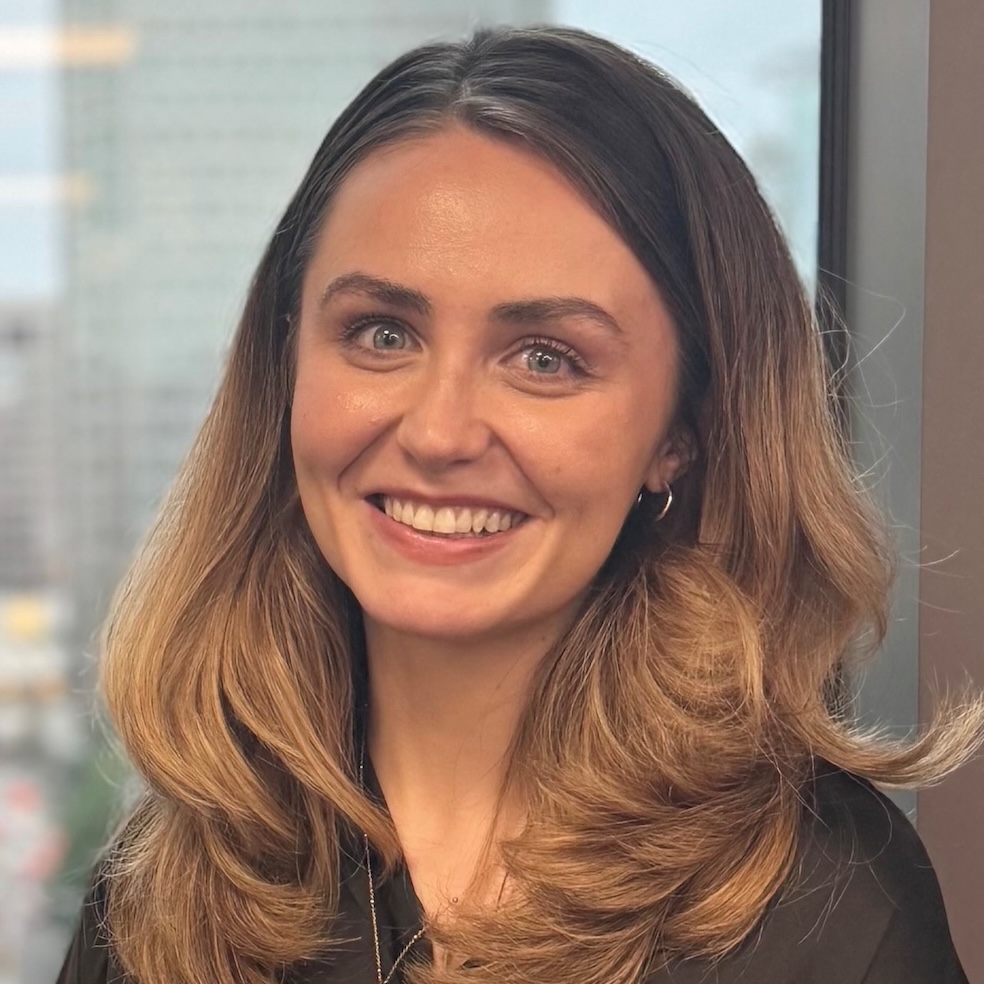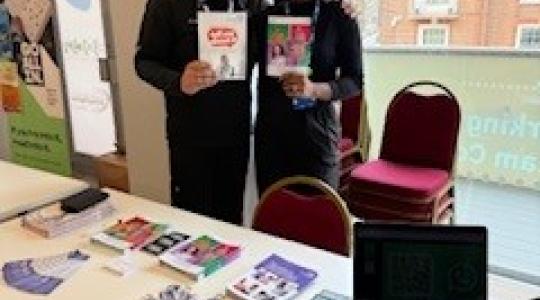Sun safety and smart tech: Changing the future of skin cancer care
Skin cancer is one of the most preventable forms of cancer, and thanks to new technology and public awareness, we’re making progress in detecting it early and improving outcomes.
In north east London, we’re exploring how smart innovation like AI-assisted diagnostics and digital referral pathways are helping patients get faster and more convenient access to care.
We are also delivering community campaigns that are making sun safety simple and accessible for everyone. Together, these efforts are shaping a future where fewer people face the challenges of skin cancer.
This work is vital, as over 17,000 people are diagnosed with melanoma skin cancer each year, and sadly, around 2,300 people die from it annually. The main cause of melanoma is ultraviolet radiation, which comes from the sun and artificial sources, like sunbeds.
We’re encouraging everyone to regularly check for warning signs of skin cancer. This includes changes to moles or lesions; particularly those that change in size, shape or colour; spots with irregular edges that bleed or itch.
Technology that’s changing skin cancer detection
Technology is revolutionising skin cancer detection and treatment, improving survival and making care more accessible. In north east London, we’re using new technology to deliver timely, effective care that is saving lives.
We’ve recently opened an AI-assisted skin cancer clinic at Barking Community Hospital’s new Community Diagnostic Centre (pictured below). Powered by DERM, this artificial intelligence system developed by Skin Analytics is a first for the area. DERM analyses skin lesions, assessing whether they are likely to be benign or need specialist attention, with high accuracy.
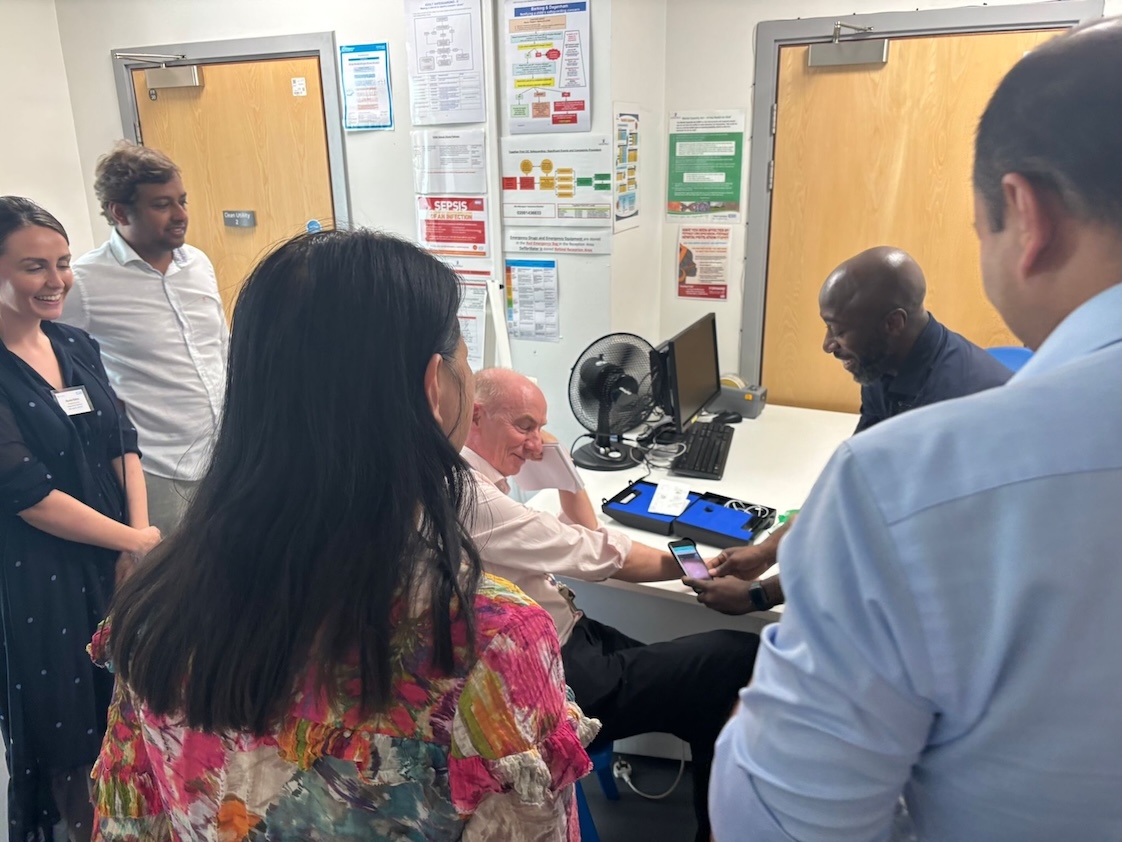
Patients can be seen much sooner, often within a week of referral, and in a convenient local setting. Those who do need further care are prioritised more effectively. We’ve seen positive results from this new technology in earlier NHS trials. DERM has already helped identify thousands of cancers across the NHS while dramatically reducing unnecessary hospital visits. For Barking & Dagenham, this clinic represents a leap forward in tackling health inequalities, ensuring faster, fairer access to care.
A new digital pathway at Homerton has been transforming the way referrals are managed. GPs can now capture and share high-quality images of skin lesions with consultants at the Homerton using a digital platform called Isla (pictured below).
Dermatology consultants can review far more cases in each clinic meaning that decisions are made faster, and patients spend less time waiting for a diagnosis. The system also ensures better governance, integrates seamlessly with patient records, and supports GPs with tools that make referrals more effective.
By speeding up diagnosis and ensuring that suspicious changes are flagged early, these new technologies offer hope for reducing late-stage melanoma deaths.
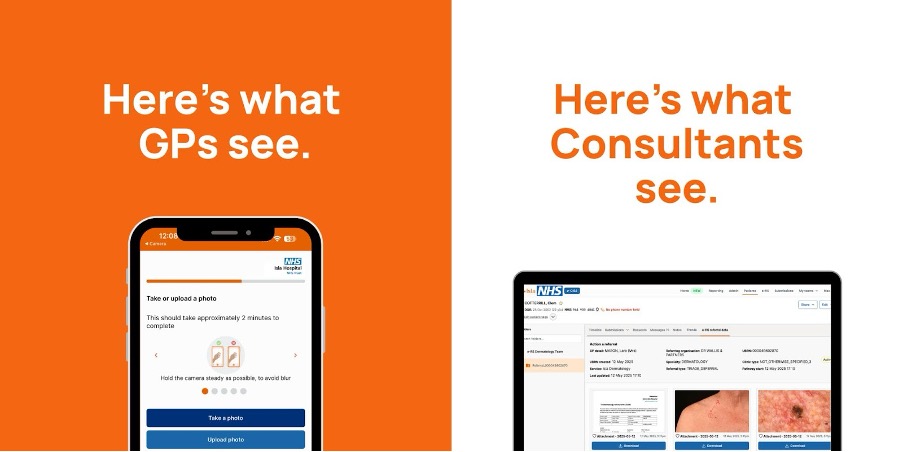
Raising awareness of skin cancer prevention
Even as technology advances, protecting your skin has never been more important. The “LDN Get Sun Set” campaign launched by the North East London Cancer Alliance reminds Londoners that protecting your skin from the sun is an essential part of everyday life, not just on sunny days. Over 90% of UV rays penetrate clouds, damaging your skin even on overcast days.
Our advice to stay sun safe: use broad-spectrum suncream (SPF 30+) and make sure you reapply regularly, wear hats and protective clothing, UV-rated sunglasses, and seek shade when the sun is strongest (between 11am and 3pm).
Targeting young people is really important as damage done to your skin at a young age can have implications later in life. Surveys show that over 70% of young people admit to being sunburnt, and about one in seven consider it a normal part of summer. But sunburn is never harmless - it’s evidence of DNA damage to skin cells, which can develop into cancer years later. While people with lighter skin, red or blonde hair, and freckles are most vulnerable, melanoma can and does affect people of all skin tones.
We took to the streets of north east London to take our sun safety message directly to the community. The ‘LDN Get Sun Set’ campaign launched in Victoria Park with a bright yellow, repurposed “ice cream” van. We handed out free sunscreen and shared practical advice throughout the day. As part of our wider outreach, the education van is now touring the area until mid-October, helping to keep sun safety front of mind across our boroughs.
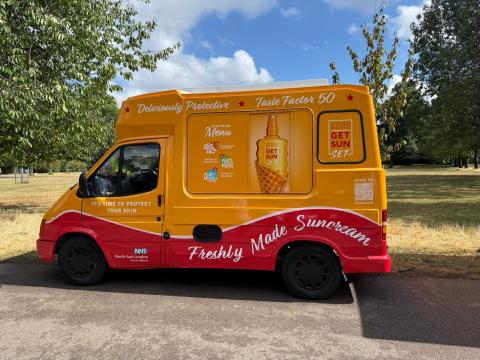
A better future for skin cancer care
As Project Manager at the North East London Cancer Alliance, I’ve witnessed the commitment, hard work and creativity behind these initiatives. With faster referrals and AI-supported lesion assessments as part of the pathway, we’re making skin cancer care more efficient and accessible for patients - helping more people get the right support, sooner.
Visit our campaign webpage: https://www.nelcanceralliance.nhs.uk/LDN-get-sun-set and watch our skin cancer awareness video: https://youtu.be/S59lXrHCDYo
Rosie O'Dea is a Project Manager for the North East London Cancer Alliance.
